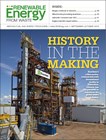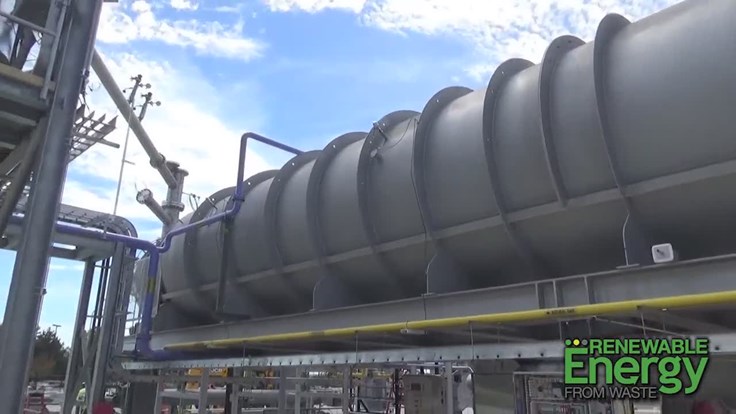Gershman, Brickner & Bratton Inc. (GBB), Fairfax, Virginia, has announced the release of a request for information and qualifications (RFIQ) from the Metlakatla Indian Community (MIC), located in southeast Alaska, to identify companies that might be deemed as ‘qualified proposers’ relative to a potential small-scale waste-to-energy (WTE) facility for processing municipal solid waste (MSW) on Annette Island, Alaska.
The RFIQ is available at www.gbbinc.com/mic-rfiq, and the deadline to submit responses is Friday, August 28, 2015, at 5:30 p.m. EST.
Through the RFIQ, the MIC says it is aiming to evaluate and short-list companies and WTE technologies that offer an affordable solution in providing local jobs, creating energy and capable of processing at least 5 tons per day of MSW as currently generated by MIC, with an allowance for an increase of feedstock to around 10 tons per day.
“The MIC’s solid waste management system’s reliance on the municipal dump is unsustainable. We are therefore looking into changing the existing system to prevent the MSW from being disposed in the dump and allow for its proper closure,” says Audrey Hudson, mayor of the MIC. “Working closely with GBB, we are getting valuable guidance in updating our solid waste management plan, investigating recycling options and navigating this procurement process.”
“Through a grant received from the U.S. Department of Interior to update the solid waste management plan, the MIC is considering small-scale WTE strategies to reduce or eliminate the need for the dump,” notes John Carlton, P.E., BCEE, GBB senior vice president and project manager for this assignment. “Our ultimate goal with this procurement is to identify appropriate technologies that can process the MSW and generate electricity and/or heat for facilities such as schools, a medical clinic or a fish packaging plant.”
MIC is the only reserve in the state of Alaska and is the southernmost island on the panhandle. Its population is approximately 1,500 with an average growth rate of 1 percent since 2008. Currently, MIC disposes of all MSW at the local landfill and sends used motor oil and toxic waste to Ketchikan by barge for recycling. Twice a week, MIC burns medical waste from the local clinic.
The RFIQ is available at www.gbbinc.com/mic-rfiq, and the deadline to submit responses is Friday, August 28, 2015, at 5:30 p.m. EST.
Through the RFIQ, the MIC says it is aiming to evaluate and short-list companies and WTE technologies that offer an affordable solution in providing local jobs, creating energy and capable of processing at least 5 tons per day of MSW as currently generated by MIC, with an allowance for an increase of feedstock to around 10 tons per day.
“The MIC’s solid waste management system’s reliance on the municipal dump is unsustainable. We are therefore looking into changing the existing system to prevent the MSW from being disposed in the dump and allow for its proper closure,” says Audrey Hudson, mayor of the MIC. “Working closely with GBB, we are getting valuable guidance in updating our solid waste management plan, investigating recycling options and navigating this procurement process.”
“Through a grant received from the U.S. Department of Interior to update the solid waste management plan, the MIC is considering small-scale WTE strategies to reduce or eliminate the need for the dump,” notes John Carlton, P.E., BCEE, GBB senior vice president and project manager for this assignment. “Our ultimate goal with this procurement is to identify appropriate technologies that can process the MSW and generate electricity and/or heat for facilities such as schools, a medical clinic or a fish packaging plant.”
MIC is the only reserve in the state of Alaska and is the southernmost island on the panhandle. Its population is approximately 1,500 with an average growth rate of 1 percent since 2008. Currently, MIC disposes of all MSW at the local landfill and sends used motor oil and toxic waste to Ketchikan by barge for recycling. Twice a week, MIC burns medical waste from the local clinic.



